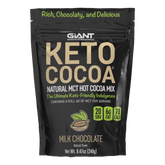The Ultimate Guide to Protein and How It Can Help Transform Your Life
 Protein is an essential nutrient that is important for building and repairing muscles, as well as for other bodily functions.
Protein is an essential nutrient that is important for building and repairing muscles, as well as for other bodily functions.
Some Of The Best Sources of Protein Include
- Meat, poultry, and fish: These are some of the most complete sources of protein, as they contain all of the essential amino acids the body needs. Chicken, turkey, beef, pork, and fish such as salmon, tuna, and halibut are all excellent sources of protein.
- Dairy products: Milk, cheese, and yogurt are good sources of protein, as well as other essential nutrients like calcium and vitamin D.
- Eggs: Eggs are another great source of protein, as well as other nutrients like choline, which is important for brain health.
- Beans and legumes: These include lentils, peas, beans, chickpeas, and more. They are good source of plant-based protein and also contain fiber, vitamins and minerals.
- Tofu and tempeh: These are made from soybeans and are popular options for vegetarians and vegans. They are good source of protein, and also contain iron, calcium, and other nutrients.
- Nuts and seeds: Almonds, pumpkin seeds, sunflower seeds, and chia seeds are all good sources of protein, as well as healthy fats and other important nutrients.
- Protein powder: There are a variety of protein powder supplements available, such as whey protein, casein, soy protein, pea protein, hemp protein and more. These can be a convenient way to add protein to your diet, but it's important to check the label and choose a high-quality product.
It is important to note that consuming a balanced diet that includes a variety of protein sources can help ensure that you are getting all of the essential amino acids your body needs.
How Much Protein Do I Need?

The Recommended Dietary Allowance (RDA) for protein is 0.8 grams per kilogram of body weight, which means that an average sedentary adult should consume at least 56 grams of protein per day. However, athletes and people who engage in intense physical activities require more protein to meet their body's requirements for muscle growth and repair.
According to the American Dietetic Association, athletes and people who engage in moderate to intense physical activities should consume 1.2 to 1.7 grams of protein per kilogram of body weight per day. For example, if an individual weighs 70 kg, they should consume approximately 84 to 119 grams of protein in a day.
Read the 'Nutrient Recommendations and Databases" here.
Why Should I Be Consuming Protein?

Protein is undoubtedly one of the most important nutrients for the body. It is classified as a macronutrient, which means that it is required by the body in relatively large amounts. Proteins are made up of amino acids, and these amino acids are the building blocks of muscles, bones, tissues, and organs. The body needs protein for growth, repair, and maintenance of all these vital components. This is why it is essential to eat enough protein.
Read more about 'Protein' here.
The Affects of Protein Deficiency

Protein is an essential nutrient that serves various vital functions. It is an important building block for bones, muscles, cartilage, skin, and blood. Protein is also responsible for producing enzymes, hormones, and other chemicals required for proper body functioning. However, if you don't consume enough protein, your body can suffer from severe consequences.
One of the significant outcomes of insufficient protein intake is muscle loss. Protein is a crucial nutrient for building and repairing muscles. Without adequate protein, your body may start to break down muscles to obtain the necessary amino acids it requires. As a result, you may experience muscle weakness, fatigue, and difficulty performing physical activities.
Furthermore, a lack of protein can lead to a weakened immune system. Antibodies and immune system cells are made from protein, and without enough of it, your body will struggle to fight off infections and illnesses. A weak immune system can leave you more susceptible to colds, flu, and other health problems.
Additionally, a protein-deficient diet can negatively impact your bone health. Bones require sufficient calcium and protein to maintain their strength and integrity. If you don't consume enough protein, your bones may become weak and brittle, leading to an increased risk of fractures and osteoporosis.
Read 'Are You Getting Enough Protein? Here's What Happens If You Don't' here.








